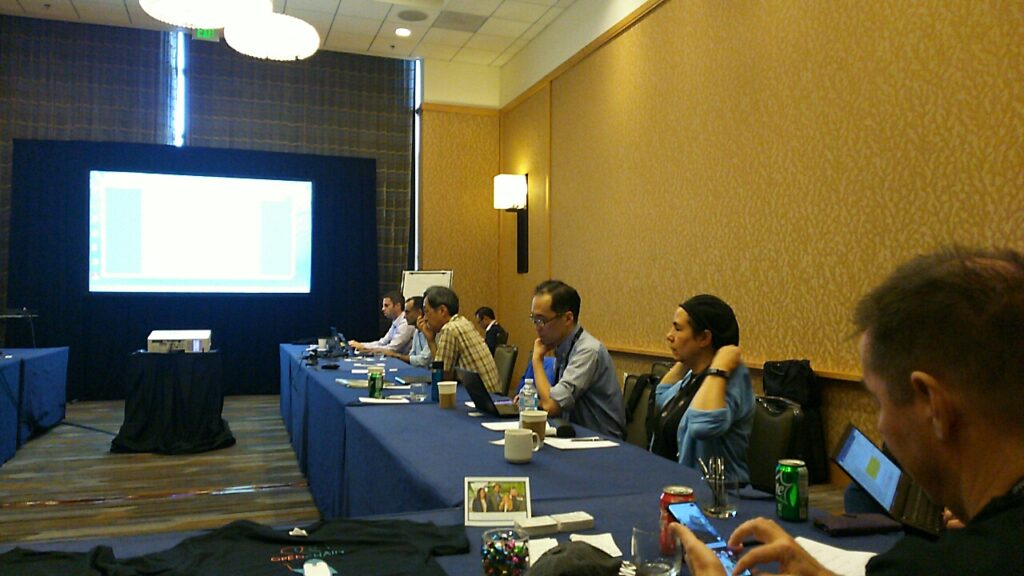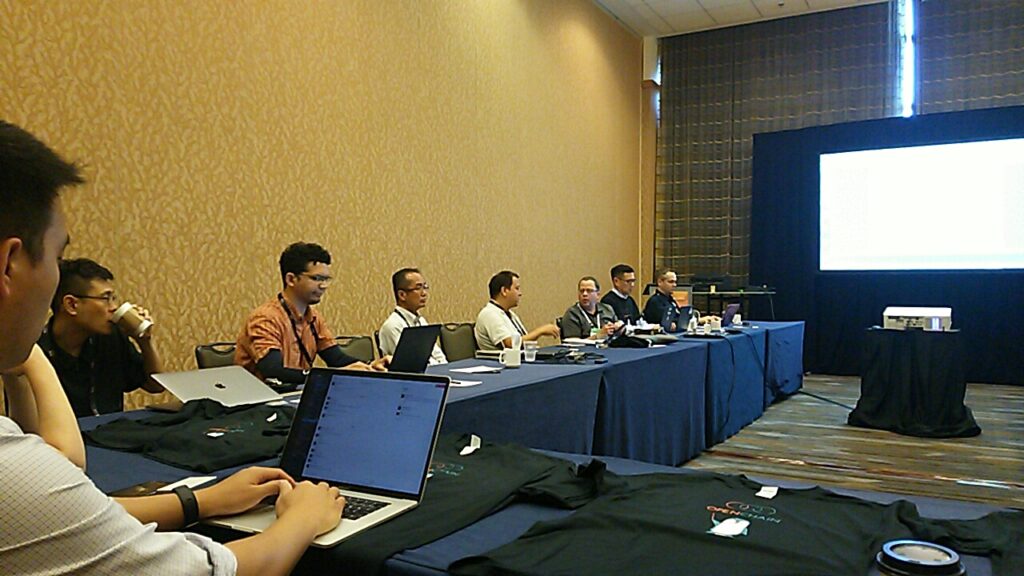SAN FRANCISCO, Aug. 15, 2019 – Arm and Western Digital Corporation, Platinum Members of the OpenChain Project and key participants in the global supply chain, today announce conformance with the OpenChain Specification. Qualcomm Technologies, Inc., Platinum Member and founding contributor of the OpenChain Project, today announces expanded conformance to the latest version of the OpenChain Specification.
The OpenChain Project establishes trust in the open source from which software solutions are built. It accomplishes this by making open source license compliance simpler and more consistent. The OpenChain Specification defines inflection points in business workflows where a compliance process, policy or training should exist to minimize the potential for errors and maximize the efficiency of bringing solutions to market. The companies involved in the OpenChain community number in the hundreds. The OpenChain Specification is being prepared for submission to ISO and evolution from a growing de facto standard into a formal standard.
“At its core, Arm is an intellectual property company and our business is built on respecting IP rights,” says Carolyn Herzog, executive vice president and general counsel at Arm. “Open source license compliance is a key component of that effort, and Arm’s conformance with the OpenChain Specification demonstrates its commitment to be a leader in this area. Through that leadership, we hope to encourage others to explore this path as a mechanism for license compliance.”
“Qualcomm Technologies has been engaged with the OpenChain Project since its inception,” says Dave Marr, Chair of the OpenChain Governing Board and Vice President and Legal Counsel, Qualcomm Technologies, Inc. “Our goal has always been to ensure open source compliance is accessible to all sizes of organizations and to support an efficient, transparent supply chain. By becoming OpenChain Specification 2.0 Conformant, we are underlining our commitment to continual improvement as a company and our broader support of great open source compliance processes across the industry.”
“We are excited at the evolution of the OpenChain Project over the last two years and particularly at its growing acceptance in the industry,” says Alan Tse, Associate General Counsel at Western Digital. “Working with other industry leaders to develop OpenChain has been an important initiative for Western Digital. It will be a key resource for compliance that also furthers the open source spirit of joint sharing and learning. By conforming to the OpenChain Specification, we hope to lead by example, build momentum throughout our supply chain, and show our commitment to open source as a community and ecosystem.”
“Arm, Qualcomm and Western Digital have been pivotal in bringing the OpenChain Project to maturity,” says Shane Coughlan, OpenChain General Manager. “Our announcement today underlines both their continued commitment to our industry standard and a further illustration of its suitability for companies of different sizes in different markets. This is also excellently illustrated by the pioneering activity of Qualcomm in pursuing conformance with the latest version of the OpenChain Specification. We look forward to our next steps, including the evolution of our de facto standard into a formal ISO standard, and the continued growth of the OpenChain community of conformance.”
About Arm
Arm technology is at the heart of a computing and connectivity revolution that is transforming the way people live and businesses operate. Our advanced, energy-efficient processor designs have enabled intelligent computing in more than 150 billion chips and our technologies now securely power products from the sensor to the smartphone and the supercomputer. In combination with our IoT device, connectivity and data management platform, we are also enabling customers with powerful and actionable business insights that are generating new value from their connected devices and data. Together with 1,000+ technology partners we are at the forefront of designing, securing and managing all areas of compute from the chip to the cloud.
About Qualcomm
Qualcomm invents breakthrough technologies that transform how the world computes, connects and communicates. When we connected the phone to the Internet, the mobile revolution was born. Today, our inventions are the foundation for life-changing products, experiences, and industries. As we lead the world to 5G, we envision this next big change in cellular technology spurring a new era of intelligent, connected devices and enabling new opportunities in connected cars, remote delivery of health care services, and the IoT — including smart cities, smart homes, and wearables. Qualcomm Incorporated includes our licensing business, QTL, and the vast majority of our patent portfolio. Qualcomm Technologies, Inc., a wholly-owned subsidiary of Qualcomm Incorporated, operates, along with its subsidiaries, substantially all of our engineering, research and development functions, and substantially all of our products and services businesses, including the QCT semiconductor business. For more information, visit Qualcomm’s website, OnQ blog, Twitter and Facebook pages.
About Western Digital
Western Digital® creates environments for data to thrive. As a leader in data infrastructure, the company is driving the innovation needed to help customers capture, preserve, access and transform an ever-increasing diversity of data. Everywhere data lives, from advanced data centers to mobile sensors to personal devices, our industry-leading solutions deliver the possibilities of data. Western Digital® data-centric solutions are comprised of the Western Digital, G-Technology™, SanDisk®, and WD® brands.
About the OpenChain Project
The OpenChain Project builds trust in open source by making open source license compliance simpler and more consistent. The OpenChain Specification defines a core set of requirements every quality compliance program must satisfy. The OpenChain Curriculum provides the educational foundation for open source processes and solutions, whilst meeting a key requirement of the OpenChain Specification. OpenChain Conformance allows organizations to display their adherence to these requirements. The result is that open source license compliance becomes more predictable, understandable and efficient for participants of the software supply chain.
About The Linux Foundation
The Linux Foundation is the organization of choice for the world’s top developers and companies to build ecosystems that accelerate open technology development and industry adoption. Together with the worldwide open source community, it is solving the hardest technology problems by creating the largest shared technology investment in history. Founded in 2000, The Linux Foundation today provides tools, training and events to scale any open source project, which together deliver an economic impact not achievable by any one company. More information can be found at www.linuxfoundation.org.
The Linux Foundation has registered trademarks and uses trademarks. For a list of trademarks of The Linux Foundation, please see our trademark usage page: https://www.linuxfoundation.org/trademark-usage.
Linux is a registered trademark of Linus Torvalds.
Media Contact
Shane Coughlan
+818040358083
coughlan@linux.com




